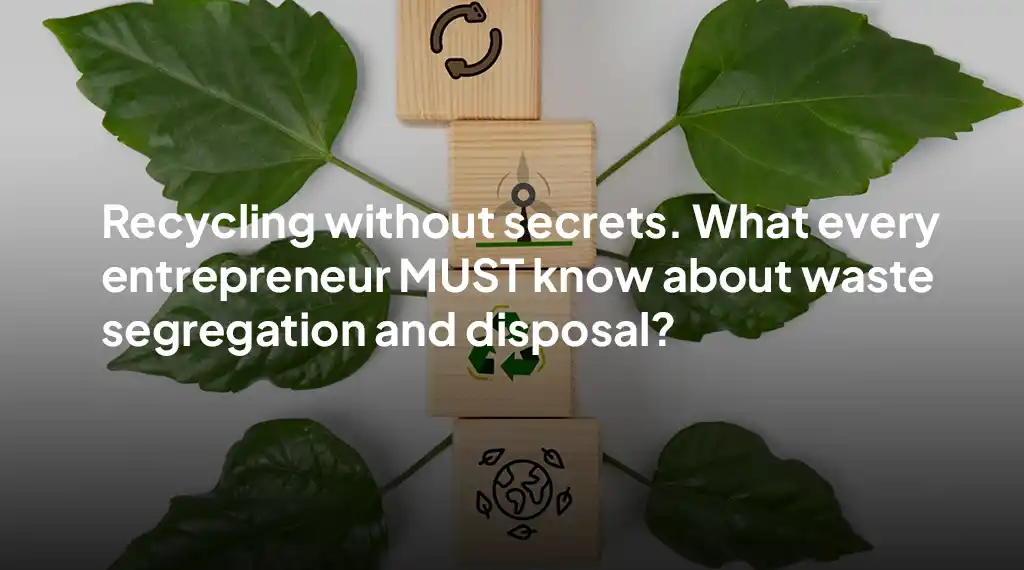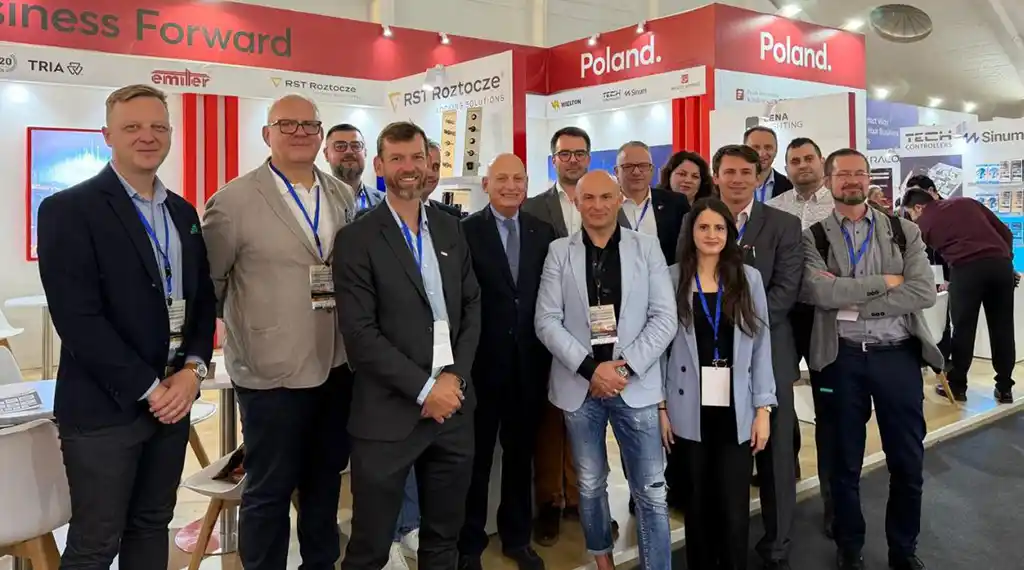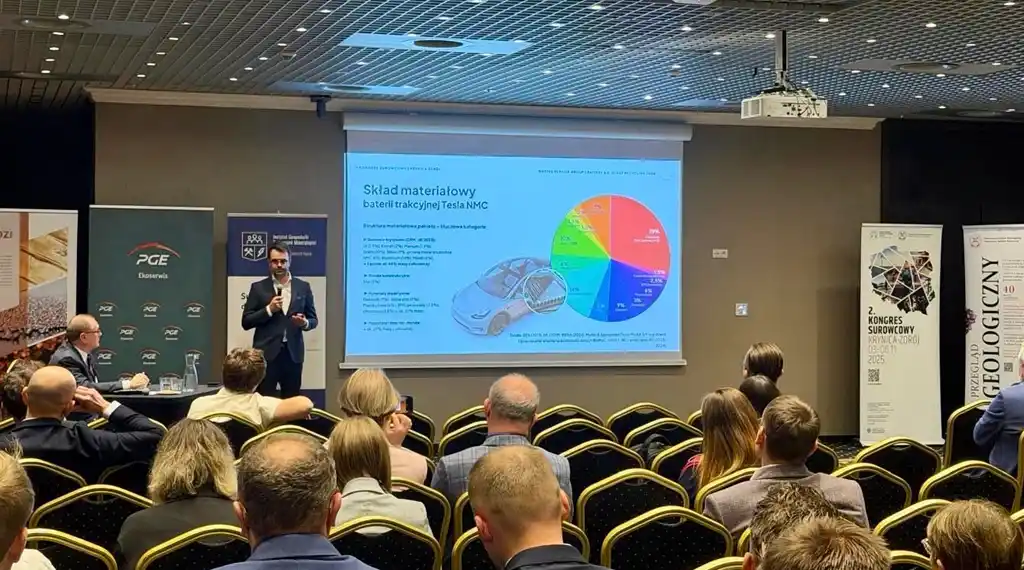
Another financial blow will come from the local government, which the legislation gives the opportunity to raise the fees for garbage disposal up to four times. However, it is not only the penalties that should convince you to carefully segregate and dispose of the waste. Read our article and find out what your company can gain from this and how the whole process looks in practice.
Waste disposal should be treated primarily as a source of a company's competitive advantage — not as a nuisance Obligation under EU regulations. Conscious waste management in the enterprise is an effective way to minimize the costs associated with garbage collection and extended producer responsibility. It is also worth showing off your activities in this regard, for example in social media and on a company blog. You will see the effects of these actions in the form of strengthening the image of a responsible company that cares about the environment.
Companies investing in innovative segregation and recycling processes also gain the opportunity to recover valuable raw materials from industrial and electronic waste. Among them are also strategic elements, necessary for the construction of electronic systems and batteries. This in turn helps with ESG reporting and shows your efforts to reduce your carbon footprint. The effect? Better position in the race for EU funding and contracts with the biggest players on the market.
Proper waste segregation in the company should begin with the preparation of instructions for the management of waste in the company. This requires the determination of how to dispose of individual fractions — with particular emphasis on hazardous waste (including radioactive waste, aggressive chemicals and batteries), collection of e-waste and metal and composite waste. It is necessary to designate a storage location and separate containers marked according to the type of waste and adapted to their particularities.
You should also set up appropriate procedures for waste collection, internal transport and cooperation with recycling companies. Educating employees and establishing appropriate pickup routes and schedules reduces the risk of leaks, explosions or mixing of fractions. Any of these events could result in downtime in the company's work, image damage and the penalties mentioned at the beginning.
Keep your finger on the pulse, too, because recipes change quite quickly. As an example, a recent changing the rules for handling batteries. Among other things, it introduces new battery collection targets for manufacturers, a requirement to calculate the carbon footprint of individual products, and a threshold for the minimum content of recycled materials in certain batteries and accumulators.
The BDO system was introduced to prevent abuse and illegal disposal. Every entrepreneur is obliged to record the quantity and type of waste generated, document its transfer and monitor recovery or disposal.
Keeping records of waste is not easy and involves the risk of making various mistakes. The most serious is the lack of registration of the company covered by the requirement. There are also lighter “offenses” - the absence of attachments when issuing a power of attorney or providing incorrect company data. When it comes to the waste record itself, you should make sure that the Waste Transfer Cards are properly filled out and that each type of waste is assigned the correct code and no fraction is left out.
To fulfill BDO responsibilities, it is worth investing in internal audits and employee training. It will also be a good idea to establish cooperation with a recovery organization, which will provide representation in contacts with state administration bodies and will conduct documentation for you. Using the experience of specialists who know the waste industry and the regulations governing it, you will avoid many pitfalls and save time that you will be able to devote to standard, operational activities.
The transfer of waste for disposal requires the conclusion of a contract for the removal of garbage. Entrepreneurs from 2022 must choose a company and establish a documented cooperation. It should specify the type of waste, the frequency of collection, the methods of waste management and the responsibilities of both parties.
The transfer of waste should take place on the basis of the already mentioned Waste Transfer Charter. Only entities with an active registration to the BDO in the field of transport are entitled to accept waste. You should also make sure that it lists the BDO as collecting and processing a specific type (code) of waste. An important aspect is also the experience in the disposal of waste from the industry in which your company operates and the use of technologies that improve the recovery of raw materials from the waste in question. You can find out what recycling should look like in the automotive sector at https://www.wastesservice.com/artykuly/recykling-dla-automotive-w-wastes-service-group.
For efficient waste management at the enterprise, a clear division of related responsibilities is of great importance. The employer should be responsible for the preparation of procedures, the designation of storage sites, the signing of contracts with the disposal companies and the maintenance of BDO documentation. The task of employees is to properly segregate waste and report possible irregularities and hazards resulting from the disposal of hazardous waste.
Waste disposal today is based on many innovative technologies and process optimization. It shows it well Wastes Group activity. The company uses automated sorting lines, which guarantees high efficiency of recovery of individual fractions of secondary raw materials. The recycling process is controlled in real time by an intelligent monitoring system, which reduces the risk of errors. At Battery Recycling Wastes Group uses hydrometallurgy, which increases the safety of the entire process and increases the percentage of recovered metals.
As you can see, it is worth taking care of the efficiency of garbage segregation in the company not only in order to avoid administrative penalties. Thanks to this, you will reduce the costs of waste management, increase the recovery of raw materials and build the image of a sustainable, responsible company.

16/12/25
Wastes Service Group's participation in the ELEC Expo in Casablanca includes discussions on critical raw materials, battery recycling and stable supply chains for energy and electromobility.


16/12/25
We are pleased to announce that Wastes Service Group participates in the economic mission to Morocco, organized by the Polish Investment and Trade Agency (PAIH).


15/11/25
Wastes Service Group participates in Batteries Event 2025 in Lyon. Filip Gabryelewicz will present our new Battery & e-Scrap Recycling Park and present a practical approach to Urban Mining.
